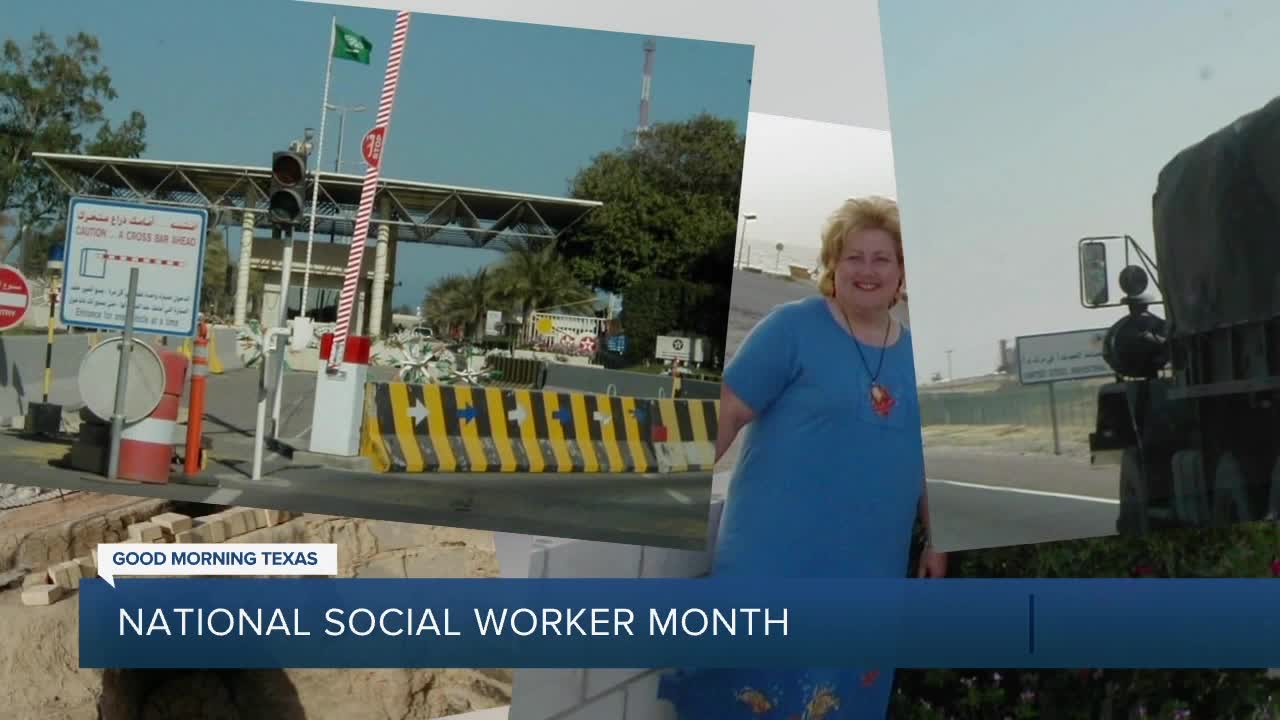BRAZOS COUNTY, Texas — As hard as it may be, I want to take you back to September 11, 2001.
What were you doing? Do you remember your environment? Maybe the smells that surrounded you? The words and phrases people were saying?
More than likely, most of us remember hearing the muffled voices of slightly panicked news anchors, or seeing the horrific visuals fly across our television screens just as fast as the planes that hit the Twin Towers.
“I remember asking my husband… what's going to happen to us?" Lynn Hagan LCSW questioned.
In the big picture, she was just one of the millions of Americans watching helplessly at a picture miles away from New York.
“Nobody in the US knew what was going to happen," she remembered thinking.
Miles may be an understatement.
She was one in about five American families watching the images from Kuwait, a country that shares about 137 miles of a border with Saudi Arabia.
”It was just different than what people in the in the states were experiencing," she said.
Hagan moved to the foreign land with her husband when his oil-related job took them there.
No one could have predicted what happened next.
“I was blown away when I got the call from the US Embassy," she said. "[Embassy leaders] asked me if I could come out and help them.”
Hagan received her social work degree from the University of Southern Mississippi after earning an anthropology degree and working with museums.
She quickly found out that her social work degree meant just as much as it did in the states as it did while on the Embassy's territory.
She became the only licensed U.S. social worker in the area.
“My country was asking me to do something, my profession was asking me to do something, and I just felt like I could not deny it," she said, thinking back to when she was deciding whether or not to step up and help those needing assistance.
Then the troops came and so did an unimaginable amount of trauma.
“It was contractors who were seeing their colleagues killed, beheaded, kidnapped," she said. "I remember thinking to myself, I really don’t know what I can do to help you.”
It turns out all she could do was listen. That's all she needed to do.
"People would come back to me and they said, you helped me so much," she said with a slight smile.
She also did home studies for the American children having to live with foster families in Kuwait.
“I was the only one in the country, so what else could I do?" she thought.
It's the determination, passion and grit many social workers share., like Fran Duane LCSW in Bryan.
”It makes us a lot more willing to step into situations that are uncomfortable for other people," Duane said.
According to the U.S. Bureau of Labor and Statistics, social workers primary help people solve or cope with their problems.
“We're boots on the ground people," Duane said. "We are out there in the trenches kind of people.”
You can find them in just about any environment too.
From schools to clinical studies to child welfare systems, many working a blended job.
“People oftentimes overlook what we do," Duane said with a slight sigh.
Hagan believes it's an industry that lacks resources and funding.
According to the U.S. Bureau of Labor, at the bare minimum, a social must obtain a 4-year undergraduate degree.
Most go on to receive a masters on top of hours worth of clinical practice and training.
“It all rolls back to knowing how much social workers do and how much they are under appreciated," Hagan said.
When asked what a world without social work would look like, here's what she had to say:
“To think of a world without social workers or people who have compassion for other people. I don't know what that world would look like. I don't think it's a world that I would want to live in, honestly," Hagan ended.




